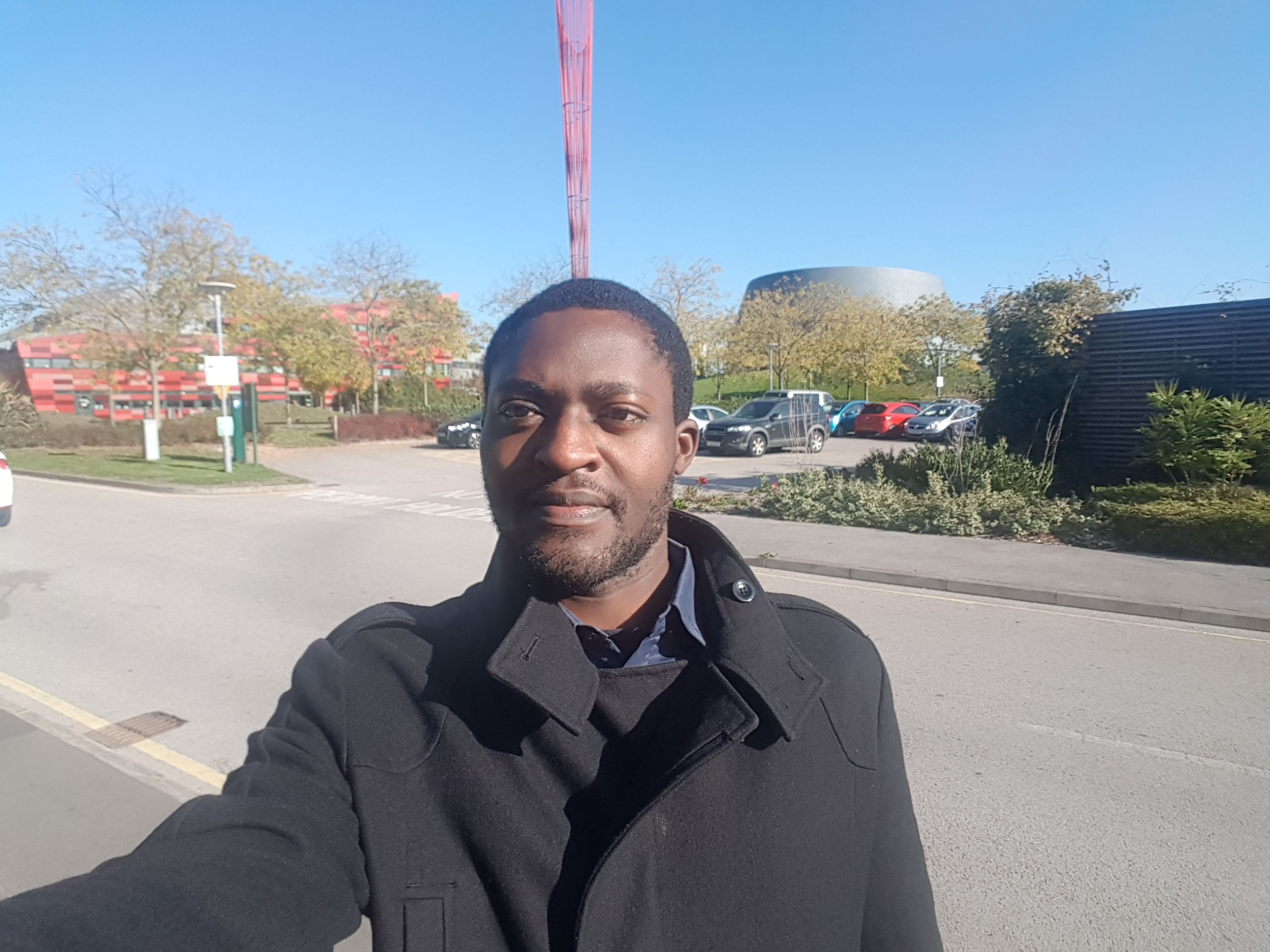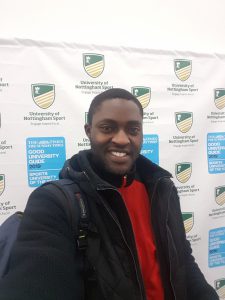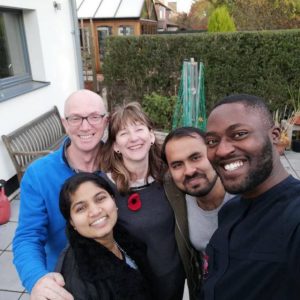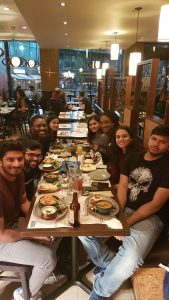
February 27, 2019, by International students
International Student Ambassadors: Adejuyigbe from Nigeria
Why did you choose to study your specific course?
As a child, I was passionate about sports especially football and I followed the English Premier League keenly. I nursed the dream of taking care of footballers like the pitch-side medics I saw in the television. I have since grown to become a physiotherapist that does just that. I have however seen the need for far reaching medical welfare concerns (in sports) in my country and region beyond football and the need to plug some knowledge gaps in my practice.
What are your favourite aspects of the course so far?

The Sports and Exercise Medicine (SEM) programme at the University of Nottingham (UoN) is poised to equip me with the requisite knowledge to address these concerns as a leader and in a team. I have learnt how to develop and participate in medical multidisciplinary teams for major sports events like the Olympics and Marathons among others.
The diversity in culture, academic background and wealth of work experience of the students and lecturers make learning sessions robust in depth and coverage. Every concept addressed is based on the most up-to-date evidence-base and relayed to real life community problems. I enjoy the involvement of seasoned guest lecturers and some have become my mentors. The professional sport placement options within is invaluable.
How do you hope your course will impact on your future career?
My economic value skyrocketed on job sites just by reflecting my UoN/SEM studentship status in my profile. I am now better equipped to address health problems of entire sport populations rather than individuals within a single sport. The leadership skills and network I have built on the course will help me maximise the opportunities that have continued to present themselves to me in my country and region (especially in the sport industry).
Describe your experience of the teaching on your course at the University of Nottingham
The lecturers are seasoned, friendly and welcoming. The mock assessments have been helpful. The modules are flexible enough to appreciate and accommodate students’ feedback while retaining their evidence-based core. Learning is as practical as it can get with real industry applicability. Emphasis is placed on how to relay the most technical concepts in common terms to the populace. There are student-led sessions and presentations to improve teaching and presentation skills.
What attracted you to the UK?

Compared to the other English-speaking options I considered (United States, Canada and Australia), only the United Kingdom could offer me world-class masters degree education within twelve months. Scholarship opportunities, good security architecture, sizeable African community and the opportunity to see live English Premiership matches were key in my decision-making process.
Were you awarded a scholarship? Please give details of the scholarship and the impact it has had on your studies
Yes, I received the Developing Solutions Scholarship (DSS).
The economic downturn in my country took a heavy toll on my family’s finances and threatened to derail my post-graduate progression. As a privileged beneficiary of the UoN’s full-tuition DSS, all the support I now receive from my family and friends comfortably covers my cost of living. Thus, enabling me to focus on my studies and other roles for skills development.
How do you manage your money as a student?
Strict budget and sticking to homemade meals as much as possible reduced my cost of feeding by more than 60%. I only spend when important and necessary and look for deals and sales. I never forget my student ID for outings as most businesses have student-friendly prices.
Describe your experience of the University of Nottingham in terms of safety
The first thing I noticed was the green environment, orderliness, well-positioned security cameras, absence of obvious security guards and round-the-clock movement pattern on campus. I have never heard of an assault on campus.
How was your experience of finding accommodation – why did you choose to live where you live and what are the best aspects of it?
I live in a private accommodation off campus (Dunkirk) which is cheaper and equidistant to my major study locations (The Medical School, Queens Medical Centre and Highfields Sports Ground) than the school accommodation options. I am ten minutes’ walk to class. Members of my Nigerian Students Society (NSS) got me this place.
What are your tips for making friends and adapting to cultural differences?

My country manager (Emma Tayou) provided valuable signposts. The international welcome programme, the NSS, attending events of interest and the international family link programme built on her sign posts until my social and networking skills took over. I recommend the same pattern. The institution is quite cosmopolitan and diverse, so the cultural transition should not be a huge shock as you will always find your niche (there is almost a society for every interest).
Do you have any tips for adapting to the academic environment in the UK?
Ask questions as much as you need. Get a mentor who has been on your course (preferably the preceding session). I have seen non-native English speakers struggle but flip things around through the Centre for English Language Education (CELE) programmes. So, utilise all the extra-learning resources that are recommended especially in areas of weakness. Never isolate yourself, make friends within and outside your course. I have academic, social and faith-inclined friends to deal with different circumstances.
How have you adapted to the climate?
Coming from a warmer climate, I approached things like an athlete. I moved in weeks before resumption, so I could experience summer here. I have gradually and incrementally exposed myself to the cold. With appropriate clothing, there is never a bad weather. Several layers of thin clothing, intermittent hot drinks, while meticulously following the weather forecasts has helped so far.
Tell us about your experiences of food in Nottingham. Have you been able to find food from your home country/region?
Adventurous. From the Asian to the Mediterranean, traditional English to native African meals, I have had a go in the company of friends. Every continent is massively represented in Nottingham. Nigerian and African outlets are all over the city and I have never missed my indigenous meals as there is so much to explore.
If you have any questions about studying at the University of Nottingham as an international student, you can get in touch with our International Ambassadors via email.

 English
English
Commendable
Thanks for this exposition Opeyemi, this is priceless advice that will help prospective students to make up their minds and adapt to life in UoN. Nottingham is indeed a place to be: culturally diverse, friendly, warm and safe. I wish you all the best!
Funnily enough, i ran into a coastal bus with ‘Gburugburu Boyz’ on it some three weeks ago here in Abuja, Nigeria. I told my colleague in the car that i have a friend in that bus. He’s should be thir senior physiotherapist now. How wrond was I!!! Well, I’m proud of you buddy.